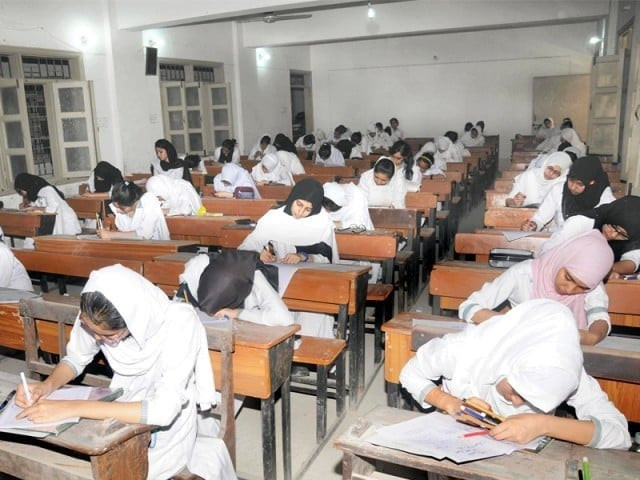Karachi's college system under scrutiny after sharp decline in intermediate results
Absenteeism, fake attendance, and teacher shortages raise concerns over Karachi's college education system quality

The latest drop in the results of the first-year intermediate exams in Karachi has raised significant concerns about the quality and functionality of the city's entire college education system.
According to Express News, the sharp decline in pass rates has also highlighted serious issues with the performance of the Karachi Intermediate Board's inspection department, which is responsible for overseeing affiliated public and private colleges in the city.
The primary responsibility of the Karachi Board’s Inspection of Colleges/Institutions department is to issue affiliations to both government and private colleges and to conduct inspections of these institutions. However, this department has been largely inactive for several years under various chairpersons.
The committees formed by this department are supposed to visit public colleges, assess the required teaching facilities, and prepare reports for relevant authorities. But these reports have not been consistently provided, leading to growing concerns over accountability and oversight.
Furthermore, when principals of government colleges send exam forms for students, they also submit fabricated attendance records. Based on these false attendance reports, the Board issues admit cards to students, many of whom have never set foot on the college campus throughout the academic year.
In some cases, students do not recognize their subject teachers, and teachers cannot identify their students, a clear sign of the lack of effective education delivery.
This absenteeism has long been a persistent issue in Karachi’s government colleges, with students often attending private coaching centers instead of their college classes as the colleges are primarily used as a platform for admissions, enrollment, and submission of exam forms, rather than centers of actual learning.
At present, there is no system in place to monitor student attendance, and the Department of College Education has not taken any practical measures to address this gap.
In addition to this, there is a severe shortage of teachers in these colleges as the recently appointed teachers, after passing the required commission exams, were only assigned roles after months of delays.
Meanwhile, nearly 2,300 teaching positions remain vacant in government colleges across Karachi, leading to a shortage of subject-specific educators.
Moreover, government colleges continue to lack essential facilities, such as computer labs, and are restricted to purchasing books from a single federal institution. College principals often report that the required textbooks are unavailable, further hampering the quality of education.
Private colleges, in contrast, have a better record in terms of teacher availability and attendance systems, with more rigorous policies ensuring better student outcomes.
The performance of private colleges in Karachi has consistently been better, with pass rates significantly higher than those in public colleges.
The disparity between government and private institutions is also evident in the recent intermediate results.
In the science pre-medical group, 30,528 students appeared for the exams, but only 10,914 passed all six papers, leaving around 20,000 students failing.
In the science pre-engineering group, 22,973 candidates appeared, with only 6,674 passing all six subjects. Similarly, in the science general group, 17,375 students sat for the exams, but only 6,282 passed.
This situation is reminiscent of last year's results, where a three-member committee was formed under the interim Chief Minister, Justice (retd) Maqbool Baqar, which recommended giving students 10-15% extra marks to help them pass.
However, this year's results show that the issue persists, raising concerns about systemic problems in Karachi’s educational setup.
When contacted by Express, Dr. Soroush Lodhi, the former convener of the committee formed to review the previous year’s results and Vice Chancellor of NED University, stated that based on the committee's findings, there were no flaws in the way the exam papers were assessed.
He emphasized that no student was unfairly favored, nor were any students intentionally failed. The assessment process, he said, was both standard and transparent.
A college principal, speaking on condition of anonymity, also mentioned that due to the lack of student attendance, teachers do not conduct classes regularly. However, during the assessment of exam papers, teachers are extremely strict about adhering to the rules and regulations.























COMMENTS (1)
Comments are moderated and generally will be posted if they are on-topic and not abusive.
For more information, please see our Comments FAQ